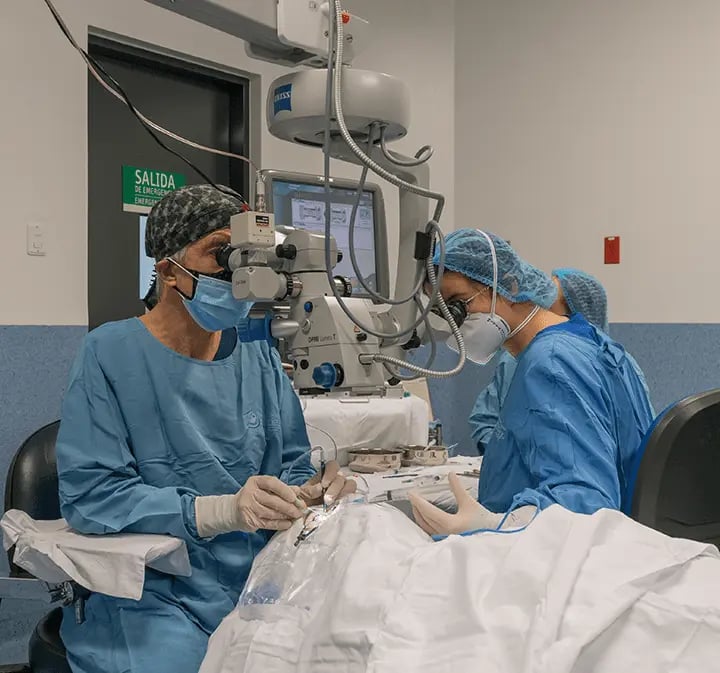Cataracts

Cataracts
A cataract is a cloudy area in the natural lens (or crystalline) of the eye, which is behind
the iris and the pupil. Cataracts are the most common cause of loss of vision among
people above 40, and it is the main cause of blindness in the world.
Causes: When aging or an injury change the tissue of the eye crystalline, the crystalline proteins and fibers start decomposing, which makes vision blurry or cloudy.
Some hereditary genetic disorders that cause other health issues may increase the risk of developing cataracts.
They may also be caused by other ocular conditions, prior eye surgeries, or diseases such as diabetes.
Long-term use of steroid medications may also cause the development of cataracts.
Procedure: It consists of removing the crystalline of the eye and, in most cases, replacing it with intraocular lenses. The surgery, performed by an ophthalmologist, is ambulatory. It is a very common and generally safe procedure.
Cataract surgery
You probably know cataracts are an ocular disease related to age, in which the crystalline of the eye is clouded. This causes a decrease in vision, which may be corrected through surgery. We will explain everything you need to know about such surgery, ranging from what it is and who is a good candidate, to what can be expected both before and after the procedure.
The risk of developing cataracts increases as people grow old. They are the main cause of blindness among adults all around the world, and affect more than half of people above 70. Fortunately, there is a surgical procedure called cataract surgery. There are two main kinds: intracapsular and extracapsular. The choice of one or the other depends on both your visual needs, and your surgeon’s preferences.
How long does a cataract surgery last?
It depends on the patient. Usually, it takes less than half an hour, if it is performed on one eye. But, if the surgery is done on both eyes, professionals mostly recommend not to do the whole procedure the same day, they suggest to wait between one and two weeks,
before doing the surgery on the other eye.

